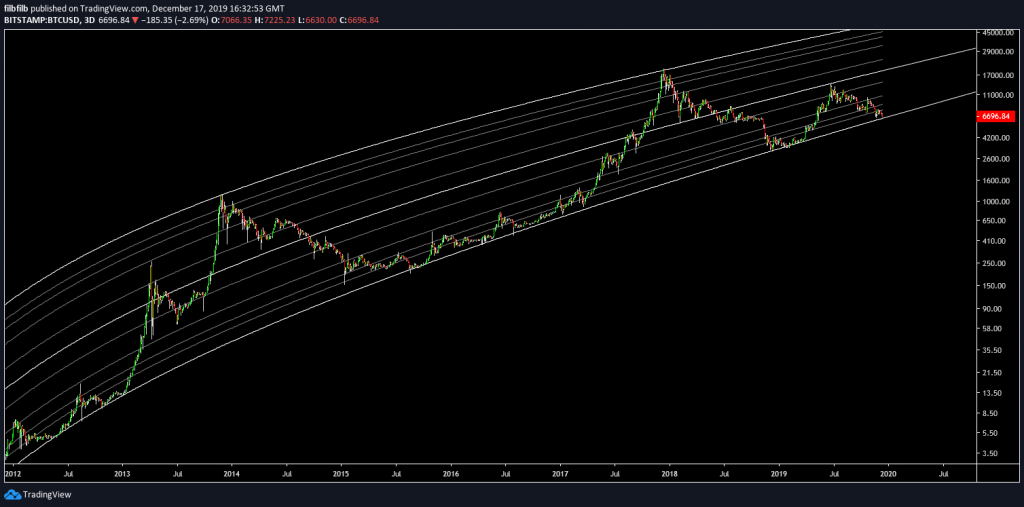A controversial new Bitcoin Cash mining tax to fund development will either ensure its survival – or lead to its doom, claim pundits
The leading Bitcoin Cash mining pools have banded together to direct 12.5% of block rewards over si...
A controversial new Bitcoin Cash mining tax to fund development will either ensure its survival – or lead to its doom, claim pundits
The leading Bitcoin Cash mining pools have banded together to direct 12.5% of block rewards over six months from May to November to finance around $6 million worth of BCH development.
They’re calling it a “6-month short-term donation plan”, with Jiang Zhuoer of BTC.Top, Jihan Wu of Antpool and BTC.com, Haipo Yang of ViaBTC, and Roger Ver of Bitcoin.com all signing up to the plan
More power to these generous souls you might think – except the sting in the tail is they’ll also be enforcing the 12.5% tax on everyone else mining Bitcoin Cash too, by orphaning blocks that don’t cough up.
Miners have to pay a ‘voluntary’ donation
So this donation plan is effectively a straight tax on BCH mining which has led to accusations of centralisation and predictions of doom.
“To ensure participation and include subsidization from the whole pool of SHA-256 mining, miners will orphan BCH blocks that do not follow the plan,” wrote Jiang Zhuoer in his Medium post explaining the plan. “This is needed to avoid a tragedy of the commons.”
Hayden Otto, CEO of BitcoinBCH.com which runs the HULA payment network, said the idea of a mining levy to fund development was not new and had been discussed by BCH miners after the CoinGeek conference in Hong Kong in May 2018.
“I think it could be successful. They have made it clear that this is just to be a 6 month experiment, with set start and end dates. So if it fails, they will just abandon the idea after the 6 month period has expired,” he said.

Centralisation will lead to doom says critics
Critics of the proposal (and probably anti-BCH types in general) point out that the controversial scheme demonstrates the centralization of power on the BCH blockchain at present – with four mining outfits controlling enough of the hashpower to able to call the shots.
On social media some are calling it a ‘cartel’. What other changes might they decide to enforce in future?
On the other hand, the very centralisation of power also suggests that investment in developing the BCH ecosystem, and getting more and more people on board, is also sorely needed.
There have been concerns for some not enough money was being directed towards development.
In June last year leaked Telegram messages suggested the BCH dev team had just half a dozen core members who were struggling to keep up with backports from Bitcoin Core, much less developing the underlying technology.
The reports were labelled by Roger Ver as “fake news”.
Critics take aim
Twitter user WhalePanda called the 12.5 donation plan: “Literally a centralized totalitarian regime with a 51% attack threat.”
Nic Carter from Coinmetrics said the proposal showed BCH “was never meaningfully decentralised, but in desperation, even the pretense has been dropped now.
He also called it a:”Desperate attempt to save a doomed project (which of course actually accelerates its demise)”.
It was never meaningfully decentralized, of course, but in desperation, even the pretense has been dropped now.
— nic carter (@nic__carter) January 23, 2020
Others suggested Roger Ver was being hypocritical as in previous tweets he said: “All taxes are the moral equivalent of theft, even if the money is used for a good cause”.
The obvious concern with such a tax is that the BCH hash rate will suffer. BCH miners will suffer the double hit of a 50% reduction in block rewards in April, followed by a further 12.5% reduction for six months from May.
Micky has already reported on predictions that the upcoming Bitcoin Cash halving in early April could see miners switch to BTC (which doesn’t experience a halving until May).
CoinMetrics CMBI Manager Benjamin Celermajer has predicted the halvings of BTC and BSV “could very well lead to their ultimate demise”.
Making a hash of it
However Zhuoer wrote they had considered the implications and it wasn’t as simple as 12.5% of the hash rate switching over to BTC.
“After difficulty adjusts on BTC, it is a different story,” he wrote.
“Assume round numbers for illustration: BTC is 97% hash and BCH 3%.If BCH gives up 12.5% of its reward, that 3% goes to about 2.6%, and BTC would go to 97.4%.
“0.375% of the total SHA-256 rewards are being pulled out of the entire system, but this cost will be split between BTC and BCH in the same ratio as the hash (97:3).The BCH hashrate will be diminished by 12.5%, but BTC mining will bear 97% of the cost of the diminished profitability, because there will be more hash competing for the same BTC rewards.”
Otto summed it up as: “It basically forces BTC to pay for us.”
In any case, as these four mining pools are clearly committed to the proposal and are already mining uneconomically according to Binance, it seems unlikely they’re going to stop mining BCH as a result, even if some others do others do.
“I think it shows that most of the big mining pools that control maybe 30-40% of all SHA256 hash are long term invested in the success of BCH,” Otto said.
The post Controversial BCH mining tax could save – or kill – the project appeared first on Micky.
source https://www.tokentalk.co/Micky/controversial-bch-mining-tax-could-save-or-kill-the-project-5e2907824005ebbd2c51a755

No comments:
Post a Comment